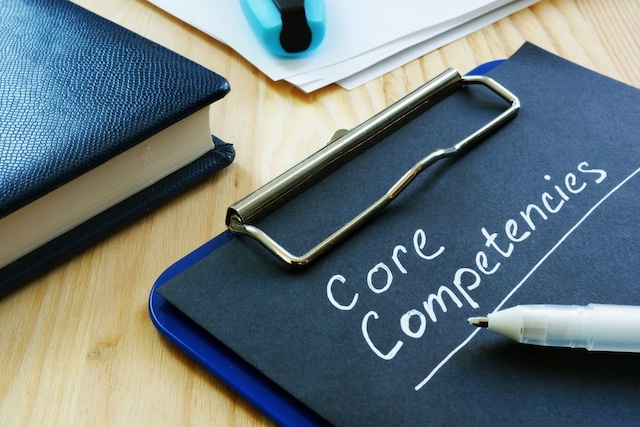Delegation is a powerful tool and skill that can significantly impact an organization’s success.
From a management standpoint, delegation involves a manager assigning particular tasks or objectives to employees, transferring responsibility and authority for their completion. This shift in focus not only allows leaders to engage in strategic planning, relationship building, and other high-level duties crucial for organizational success, but also empowers the team to take ownership of their work and contribute to the organization’s goals.
Delegation also offers numerous benefits for employees. It provides opportunities for skill development, increases job satisfaction, and fosters a deep sense of trust and ownership within the team. When team members are entrusted with important tasks, they feel more valued and motivated to perform at their best, knowing that their contributions are integral to the team’s success.
However, many leaders and employees struggle with delegation despite its clear advantages. Common reasons for hesitation include the belief that explaining tasks takes longer than completing them personally, a desire to feel indispensable, or a lack of confidence in team members’ abilities.
Overcoming the barriers to delegation is a crucial leap towards unlocking your team’s potential and driving organizational growth and fostering a more dynamic and adaptable workforce.
10 Ways to Delegate Work Effectively
Here’s a list of ten strategies for delegating work effectively in the workplace:
1. Identify what can be delegated, under what circumstances
Not all tasks are suitable for delegation. Critical responsibilities such as performance reviews and other personnel matters should remain under your purview. These tasks require your direct involvement to ensure that you hire the right talent and understand each employee’s strengths and weaknesses, which in turn helps you assign tasks more effectively.
On the other hand, many routine activities don’t necessitate your oversight. Consider the best use of your time from an ROI perspective. Then, determine which tasks you frequently handle that could be better managed by a team member.
Would delegating these tasks help advance their careers? If someone else is more skilled at a particular task, or if it presents a learning opportunity, a manager should delegate it. This demonstrates the manager’s trust and appreciation for their team and frees them to concentrate on more strategic initiatives.
You might also permit their team members to delegate work to one another under certain circumstances. For example, if one employee has vacation plans, they might work with their team members to ensure their work will be covered in their absence. Or if a team member is working on an urgent, time-consuming project, they might be able to hand off other routine tasks to a colleague who has the time to get them done.
2. Match tasks to team strengths
Effective delegation hinges on a thorough understanding of your team’s capabilities. Consider creating a skills matrix for your team, documenting their expertise and areas for growth. When delegating, refer to this resource to make informed decisions about task assignments.
By matching tasks to individual strengths, you ensure higher-quality outcomes and boost employee engagement and job satisfaction. This approach demonstrates your commitment to your team’s professional growth while optimizing the use of your collective resources.
3. Set clear expectations
Clearly communicate each task’s objectives, deadlines, and desired outcomes to avoid misunderstandings and ensure accountability. The project details should include alignment on “what does good look like” and the expected timeline, including the metrics you’ll use to measure the success of the employee’s work.
Explain how the task factors into the team’s or organization’s larger goals. Clarity not only empowers employees to take initiative but also minimizes the likelihood of errors or misinterpretations.
Setting clear expectations is not just a good practice, but is also a framework for accountability. It enables your team to deliver results confidently and effectively, knowing exactly what is expected of them.
4. Provide necessary resources and authority
Before assigning a project:
- Assess the resources and authority required, including access to specific software, data, or training.
- If team members need more skills, arrange for training in advance.
- Grant them the authority to make decisions and collaborate with others, fostering ownership and accountability.
Avoid the detrimental practice of micromanaging. Instead of detailing every step, focus on the desired outcome and the task’s significance within the larger organizational context. This practice will empower your team to develop their problem-solving abilities and take initiative.
Remember, not providing adequate resources or authority will set the employee up for failure. It will lead to frustration and may ultimately result in the task reverting to your workload. Ensuring your team has what they need enhances their chances of success and promotes their growth and confidence, driving overall team performance.
5. Set up regular check-ins and provide feedback
Establish a regular cadence for weekly or bi-weekly check-ins and one-on-one meetings, depending on the project’s complexity and duration.
An open dialogue helps team members to share their progress and concerns, facilitating early problem detection and collaborative problem-solving.
Also, be flexible and willing to adjust plans based on the feedback and progress reports. Sometimes, tasks may need to be reallocated, timelines adjusted, or additional resources provided to keep the project on track.
6. Encourage autonomy
Autonomy grants employees the freedom to approach tasks in their own way, which can lead to innovative solutions and increased job satisfaction.
When managers delegate tasks with clear objectives but allow team members the discretion to determine how to achieve them, it empowers employees to take ownership of their work. This sense of ownership boosts motivation and engagement, as individuals feel trusted and valued for their unique contributions.
Moreover, the approach can uncover hidden talents and skills, as team members have the opportunity to showcase their strengths in different ways.

7. Recognize the contributions
From the peer delegation perspective, when an employee delegates to a colleague and gives credit for their work, it fosters a collaborative and supportive team environment. The delegating peer builds trust and goodwill, encouraging reciprocal assistance in future tasks.
From the manager’s perspective, giving credit is crucial for developing talent and building a motivated workforce. By acknowledging the efforts and achievements of junior team members, managers encourage their growth and boost their confidence. The recognition can accelerate their professional development, preparing them for greater responsibilities.
8. Cultivate patience
Understand that mistakes may happen, be willing to adapt your approach as needed, and that efficiency develops with practice. Resist the urge to withhold tasks simply because you can do them faster; instead, empower your team to learn and grow.
Reflect on your journey—your efficiency improved over time, and the same will happen for your employees. By allowing them the opportunity to become familiar with delegated tasks, you invest in their development and the team’s overall capability. While it may take more time initially, the long-term benefits of a skilled and confident workforce will enhance productivity and morale, ultimately strengthening your team for the future.
9. Lead by example
Leading by example is a powerful way to demonstrate effective delegation to your team. By openly sharing responsibilities and showcasing your delegation practices, you illustrate the value of collaboration and leveraging team strengths.
When team members see you actively delegating tasks—clearly communicating expectations and acknowledging contributions—they are more likely to adopt similar behaviors.
10. Evaluate and reflect
After tasks are completed, assess the outcomes and gather feedback to refine your delegation practices. The evaluation process allows you to identify what worked well and could be improved, providing valuable insights for future delegations.
Engaging with your team to discuss their experiences and perspectives can enhance your approach, address any challenges, and better align tasks with individual strengths.
Create a More Dynamic and Adaptable Workforce
Effective delegation is a multifaceted skill that significantly enhances team productivity and morale. Managers can create a supportive environment that fosters growth and collaboration by practicing patience, giving credit, encouraging autonomy, and leading by example. These processes empower employees and contribute to a more efficient and engaged workforce.
At INTOO, we understand the importance of developing these skills within organizations. From career coaching to training programs to workshops, our career development and leadership development offerings can empower every member of your workforce. Contact us today to learn more.











